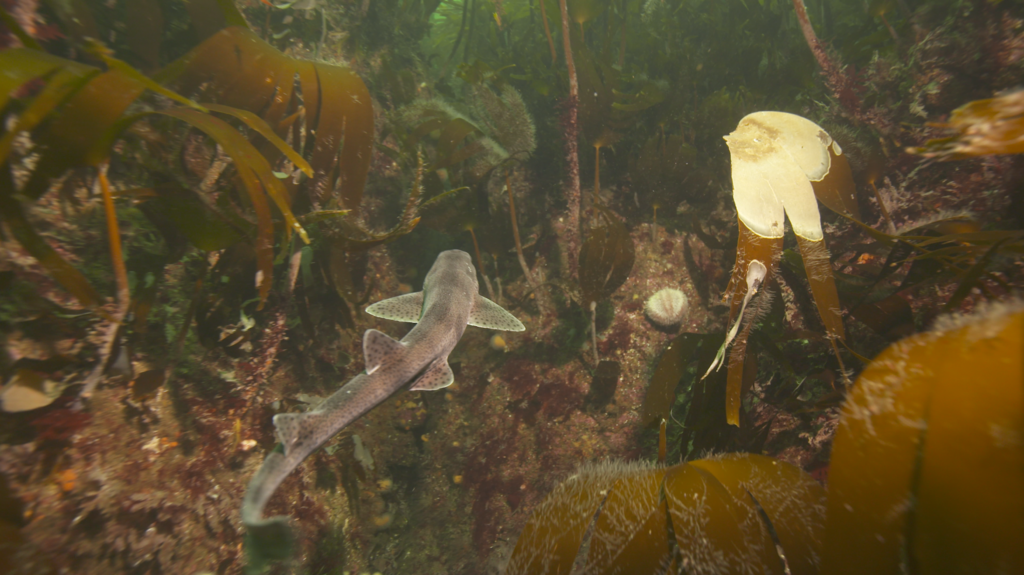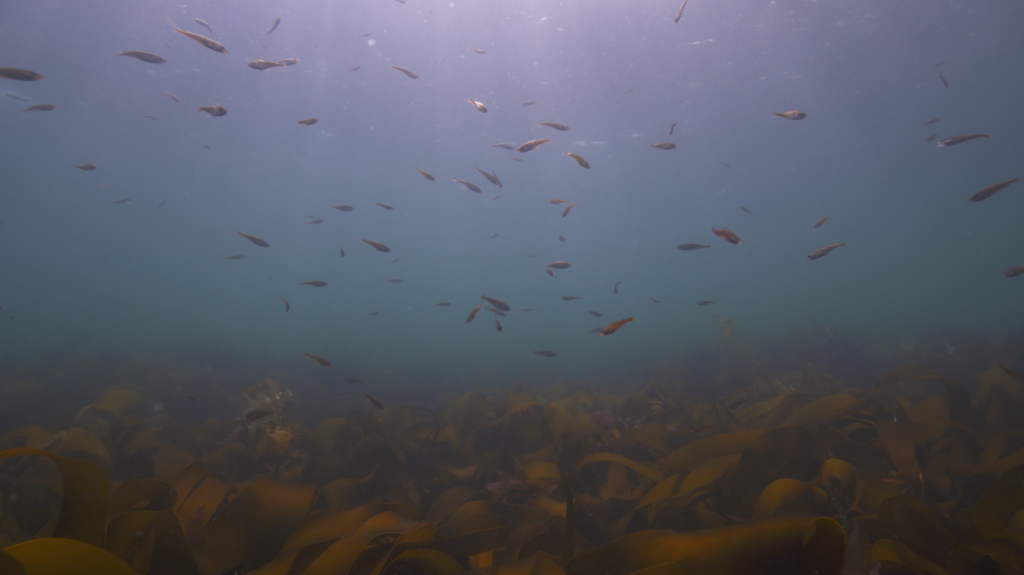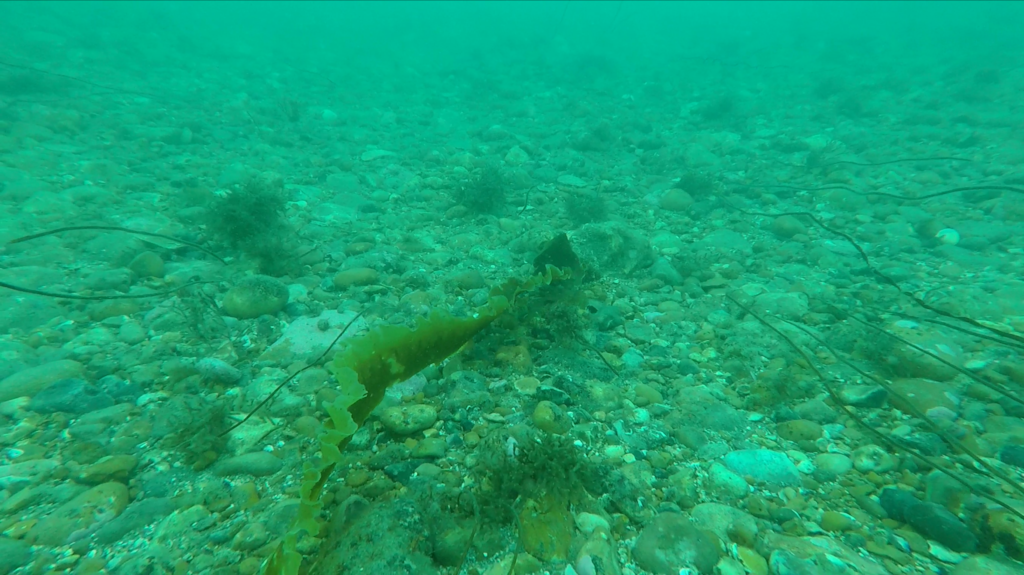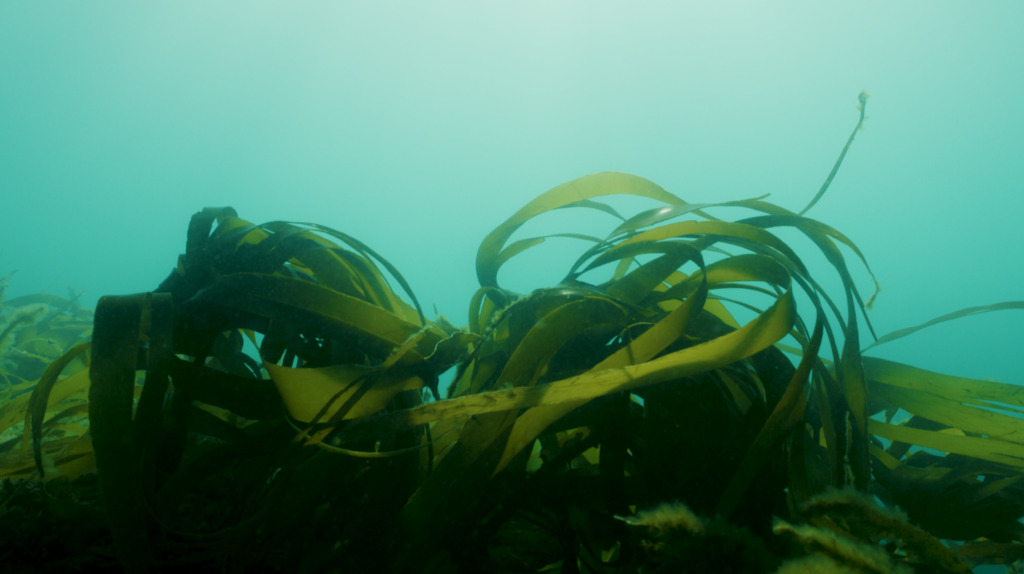The marine regeneration project breathing life back into the waters of the Solent

Hidden from view under the waters of the Solent and the English Channel are innovative marine sustainability projects designed to assist carbon storage, fisheries, food production and tourism, by regenerating historic environments.
These are areas that once contained vast seagrass meadows and underwater kelp forests. Trawling, dredging, shipping activities together with storms led to their destruction, ultimately causing damage to the marine environment and coastal protection. A transformation is underway from the Isle of Wight to Rye involving local authorities, environmental charities like the Suffolk Wildlife Trust & Blue Marine Foundation, Portsmouth, Sussex and Southampton Universities, companies like Big Wave Media and the Sussex Inshore Fisheries and Conservation Authority (IFCA). As Blue Marine’s Sam Fanshawe indicates, “We know that regeneration can be managed. It has happened elsewhere in the world. These projects aim to regenerate the kelp and seagrass forests, providing a natural nursery for young fish.”
A crucial part of this transformation was the IFCA’s introduction in 2021 of a unique by law introducing a trawling exclusion zone covering an area in excess of 300 kilometres along the Sussex coast. It was a landmark decision for coastal management since it is the first time that such a bylaw had been devised. Supporting the decision, David Attenborough commented, “Sussex’s remarkable kelp forests will now have a chance to regenerate and provide a home for hundreds of species, enhancing fisheries and sequestering carbon in our fight against carbon change.”

With trawling now forbidden, work is underway along the Sussex coast to identify the best ways to regenerate the kelp. Sarah Ward of the Sussex Wildlife Trust explains. “We are creating a kelp seed bank, charting where the kelp is, where it can be encouraged and where new growth is already occurring. This involves a lot of research and monitoring. Volunteers are helping us with two projects: Shore Search and Sea Search. Shore Search involves tidal surveys, while Sea Search charts kelp locations. Anyone scuba diving along the coast can send in details of any kelp they find.”
Alongside this underwater regeneration are plans by local authorities to regenerate the shoreline and river estuaries by encouraging the development of eco-tourism, oyster beds and the development of a new fish brand: Sussex Fish.
Marine regeneration is already making a difference in the Solent where traditional sea grass meadows are being replanted. Nicknamed the ‘lungs of the ocean’, sea grass has been proven to capture carbon at a rate 35 times faster than tropical rainforests, as well as being able to sieve millions of pieces of plastic from the ocean. Since the sea grass roots are anchored in mud and sand, the sea grass meadows help to stabilise the seabed and prevent erosion. The dense mass of green leaves provide homes for marine creatures including native seahorses while slowing down water currents, allowing nutrients to settle on the ground. Over 21,000 sea grass plants have already been added to the seabed as part of the restoration project. As an added bonus, at low tide, wild fowl such as wigeon and Brent Geese like feeding on the exposed grass.

Oyster beds
Linked into the Solent Seascape Project is a major project to revive the area’s native oyster beds. A collaborative project led by the Blue Marine Foundation, it reflects the ability of oysters to contribute to improved water quality by removing pollutants, reducing the impact of nitrates and preventing toxic algal blooms. Fishing for oysters was once big business in the Solent, with 15million oysters being harvested in 1978. Over the years pollution and overfishing has led to a decline in the oyster population while, invasive species are threatening local diversity. The native oyster fishery in the Solent collapsed in 2013.
Jenny Murray, Blue Marine Foundation says, “Evidence from outside the UK shows that an integrated reconstruction does work since seagrass and oysters benefit each other. The Solent oyster project has been running since 2015 and we have re-seeded protected seabed sites with young oysters. 84,00 oysters have now been restored into nurseries or onto the seabed. We have found that lots of other marine life, including seahorses are growing on and around the cages used to hold the oysters under pontoons and we are seeing oyster larvae growing naturally on the seabed.”

There are currently 12 oyster restoration sites within the Solent as well creating intertidal oyster reefs. At Langstone Harbour near Southampton, vast quantities of gravel mixed with cockleshells have been poured onto the seabed, before having over 30,000 oyster larvae added to the surface.
Volunteers are playing a major role in these regeneration projects as the participating charities promote a multi-faceted approach involving businesses to create a ‘Wilder Solent’. One such business is Mermaid Gin, from the Isle of Wight Distillery, which participates in the Hampshire & Isle of Wight Wildlife Trust ‘Marine Ambassador’ training scheme. This enable staff to actively support activities such as intertidal and seagrass surveys and beach clean-ups.
“We are also working with local diving groups and individual scuba divers who dive around the regenerated oyster beds and reefs, charting oysters they see on the seabed. This is valuable assistance since it helps us build up a database and see what is happening on the seabed,” comments Jenny Murray.
As the projects mature, it is hoped that more businesses will become involved actively supporting the work through volunteering, or by providing green finance through carbon sequestration schemes. Reviving these marine environments will encourage the development of healthy, productive seas for future generations and build climate change resilience.













